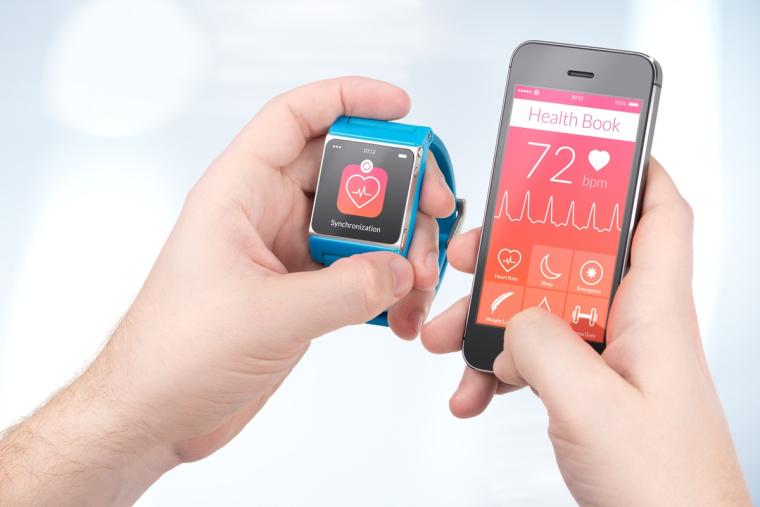
Smartwatches can do a lot of amazing things — including, it now appears, diagnose abnormal heart conditions in young athletes.
According to a recent report on CBSNews.com, irregular heart rhythms sidelined 15-year-old Connor Heinz, a freshman basketball player at Menlo-Atherton High School in California. But then his doctor suggested using a smartwatch to help diagnose Heinz with supraventricular tachycardi, or SVT. SVT is an irregularly fast or erratic heartbeat that affects the heart’s upper chambers.
That confirmed Heinz’s initial diagnosis by Dr. Scott Ceresnak, a pediatric cardiologist at Stanford Medicine Children’s Health in Palo Alto, Calif.
“It was scary at first, especially not knowing what was wrong,” Heinz said, referring to when the episodes began occurring a couple years ago. “I was jumping on the trampoline and I just felt, like, this crazy pounding from my heart. I had no clue what was going on. I went inside and, like, kind of just laid on the couch and it ended after about 20 minutes.”
With episodes happening months apart, wearing a temporary standard heart monitor proved ineffective in capturing Heinz’s heart readings, according to the CBS report.
“It happened again, and then it kept getting more frequent. So then we knew something was wrong,” Heinz said. “When I was playing basketball and I had an episode, it would kind of just, like, take my breath away and make it hard for me to keep going.”
As Heinz’s episodes became more frequent and impacted his ability to play basketball, Ceresnak determined that surgery would be required. The boy successfully underwent a catheter ablation and is back on the court.
“I was surprised by how often our standard monitoring didn’t pick up arrhythmias and the watch did,” said Ceresnak, who also is a professor of pediatrics at Stanford School of Medicine and the senior study author of a report released in December that details how smartwatches can help physicians detect and diagnosis irregular heart rhythms in children. “It’s awesome to see that newer technology can really make a difference in how we’re able to care for patients.”
 The study (published in Communications Medicine) examined electronic medical records over a four-year period for pediatric cardiology patients receiving care at Stanford Medicine Children’s Hospital. During that time span, patient records mentioned “Apple Watch” 145 times.”
The study (published in Communications Medicine) examined electronic medical records over a four-year period for pediatric cardiology patients receiving care at Stanford Medicine Children’s Hospital. During that time span, patient records mentioned “Apple Watch” 145 times.”
“Among patients whose medical records mentioned the smartwatch, 41 had abnormal heart rhythms confirmed by traditional diagnostic methods; of these, 29 children had their arrhythmias diagnosed for the first time,” according to a report summarizing the study, which also references Heinz.
Ceresnak said that most of the abnormal arrhythmias detected were not life-threatening but added that they can cause such symptoms as a racing heartbeat, dizziness and fainting.
That said, using smartwatches for measuring heart rhythms in young athletes is limited, he noted, because existing smartwatch algorithms that detect heart problems have not been optimized for kids. Children have faster heartbeats than adults and also often experience different types of abnormal rhythms than adults.
“It would be useful to design versions of the smartwatch algorithms based on real-world heart rhythm data from children,” researchers concluded.
Meanwhile, the Stanford Medicine research team plans to conduct a new study “to further assess the utility of the Apple Watch for detecting children’s heart problems,” according to a statement. “The study will measure whether, in kids, heart rate and heart rhythm measurements from the watches match measurements from standard diagnostic devices. The study is open only to children who are already cardiology patients at Stanford Medicine Children’s Health.”
“The wearable market is exploding, and our kids are going to use them,” Ceresnak said. “We want to make sure the data we get from these devices is reliable and accurate for children. Down the road, we’d love to help develop pediatric-specific algorithms for monitoring heart rhythm.”
Stanford Medicine also noted that the initial study “was conducted without external funding. Apple was not involved in the work. Apple’s Investigator Support Program has agreed to donate watches for the next phase of the research. Apple’s Irregular Rhythm Notification and ECG app are cleared by the Food and Drug Administration for use by people 22 years of age or older. The high heart rate notification is available only to users 13 years of age or older.”

